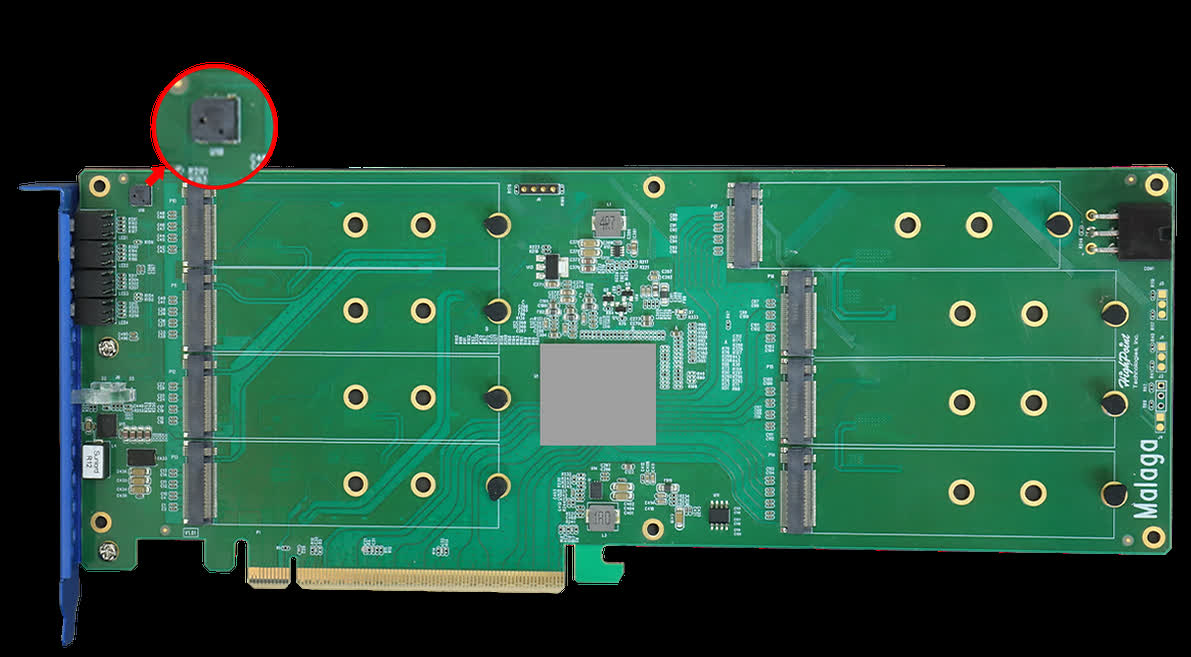What just happened? HighPoint recently announced a handful of PCIe Gen5 add-in cards that may appeal to storage enthusiasts with deep pockets. At the top of the stack is the Rocket 7608A, a full length / single width PCIe Gen5 x16 RAID card with eight onboard NVMe M.2 ports that supports 2242, 2260, and 2280 form factors. The card comes equipped with a sizable aluminum heatsink complete with cooling fan and utilizes a standard 2×3 external power connector.
HighPoint says the card is compatible with Windows and Linux, and supports hardware secure boot. They also come equipped with rear-mounted early warning LED indicators to help instantly assess operational status and the condition of each drive as well as your array.
In terms of RAID support, configuration options include RAID 0 (striped, where data is split evenly across two or more drives to boost speed), RAID 1 (mirrored, where data is mirrored across multiple drives for redundancy), or RAID 10 (RAID 1 + 0, where data is both mirrored and striped for redundancy and speed).

The company said it designed the 7608A’s PCB to maintain robust signal integrity, and the use of Broadcom’s latest PCIe switching technology enables maximum performance even if the card is positioned in the slot furthest away from the CPU.
According to the company, the card can provide 64 GB/s of transfer bandwidth and up to 56 GB/s of real world data throughput. For comparison, the fastest single PCIe 5.0 SSDs on the market – like the Crucial T705 – top out around 14.0 GB/s in testing.
Even higher-end solutions already exist, like GPU-based RAID cards from Graid Technology, but those are best suited for cloud and enterprise applications. For the average enthusiast, speeds of 56 GB/s like those offered by HighPoint’s latest card should be more than adequate.
The HighPoint Rocket 7608A is available to pre-order now priced at $1,999, and is expected to ship in the third quarter of 2024. That doesn’t include any drives, so you will need to factor those into your cost analysis as well.

